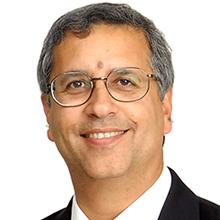Vitamin D injection fails to prevent fractures in elderly people
An annual injection of vitamin D does not reduce the rate of bone fractures suffered by elderly people. The finding is the result of a four-year long study in which scientists from the MRC Epidemiology Resource Centre at the University of Southampton compared the number of bone fractures experienced by elderly people who received a vitamin D injection with those of men and women who were given a placebo. They found no change in the rate of hip, wrist or other non-vertebral fractures between the two groups.
The study is published online by the journal Rheumatology and will appear in the journal's December issue.
The clinical trial involved 9,440 men and women aged over 75 living in the Wessex region. Vitamin D deficiency is common amongst elderly people and is thought to contribute to the risk of osteoporotic fractures - bones broken as they are weakened by osteoporosis. The injection of vitamin D, or placebo, was given at the same time as people received their annual flu vaccine. The study aimed to determine whether giving a vitamin D injection to the elderly at the same time would help to protect them against osteoporotic fractures.
"Unfortunately the results suggest that giving vitamin D in the form of an injection doesn't appear to be beneficial to older people," commented Professor Cyrus Cooper, leader of the research team, Professor of Rheumatology and Director of the MRC Epidemiology Resource Centre at Southampton.
He continued: "This is one of the largest studies of its kind and we have demonstrated quite conclusively that an annual intramuscular injection of vitamin D, given in association with influenza vaccination, is not effective at reducing fractures caused by osteoporosis among elderly people living in southern England.
"Although encouraging findings were obtained from a smaller European study, our results suggest that a programme of vitamin D injections would not be a justifiable use of stretched health care resources. Although vitamin D insufficiency is common among older people, the most effective means of correcting this would be by combined oral daily calcium and vitamin D supplements."
Related Staff Member
Notes for editors
- The study 'Effect of annual intramuscular vitamin D on fracture risk in elderly men and women-a population-based, randomized, double-blind, placebo-controlled trial': H. Smith, F. Anderson, H. Raphael, P. Maslin, S. Crozier, and C. Cooper is published online by the journal Rheumatology <http://rheumatology.oxfordjournals.org>. It will appear in the December issue of the journal.
- The University of Southampton is a leading UK teaching and research institution with a global reputation for leading-edge research and scholarship. It is one of the UK's top 10 research universities, offering first-rate opportunities and facilities for study and research across a wide range of subjects in humanities, health, science and engineering. The University has around 20,000 students and over 5000 staff. Its annual turnover is in the region of £310 million.
The University is one of the country's top institutions for engineering, computer science and medicine, and has a strong enterprise agenda. It is home to a range of world-leading research centres, including the National Oceanography Centre, Southampton, the Institute of Sound and Vibration Research, the Optoelectronics Research Centre, the Centre for the Developmental Origins of Health and Disease, and the Mountbatten Centre for International Studies. - The Medical Research Council is dedicated to improving human health through excellent science. It invests on behalf of the UK taxpayer. Its work ranges from molecular level science to public health research, carried out in universities, hospitals and a network of its own units and institutes. The MRC liaises with the Health Departments, the National Health Service and industry to take account of the public's needs. The results have led to some of the most significant discoveries in medical science and benefited the health and wealth of millions of people in the UK and around the world. www.mrc.ac.uk
